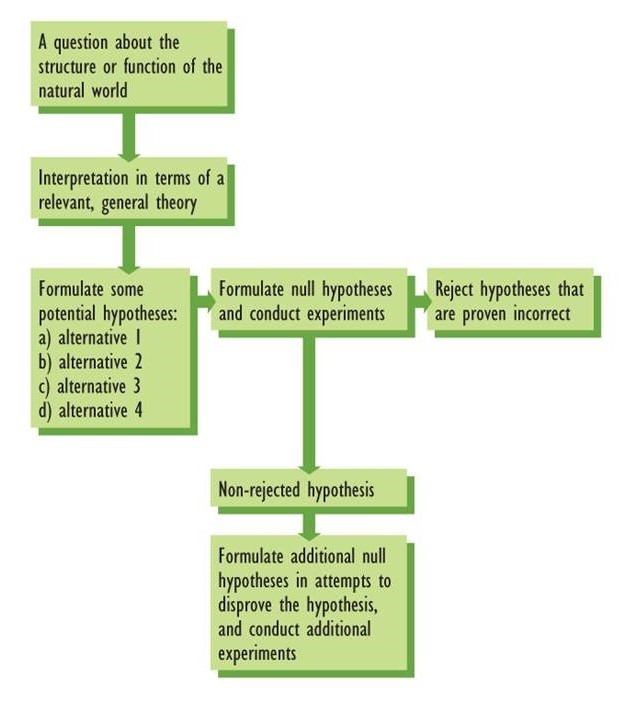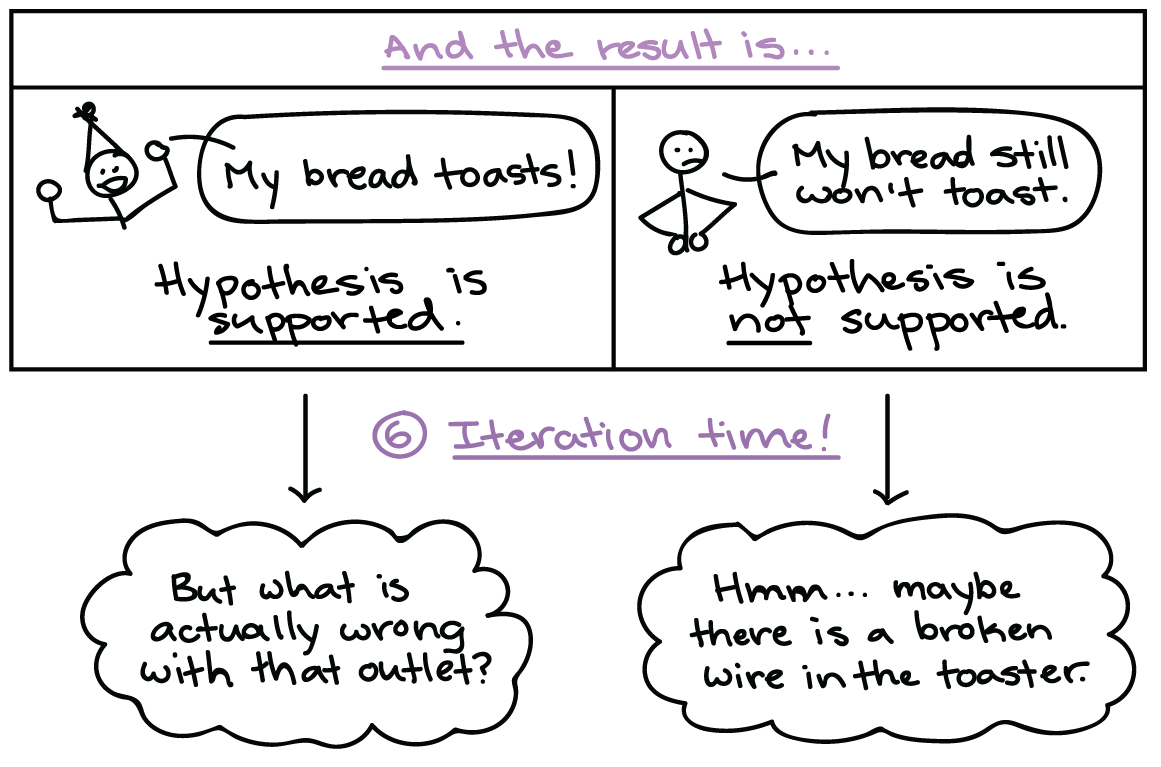How Does a Hypothesis Help Scientist Understand the Natural World
How does a hypothesis help scientists understand. A scientific law is a statement that describes what always happens under certain conditions in nature.

Chapter 2 Science As A Way Of Understanding The Natural World Environmental Science
Why does it make sense for scientists to test just one variable at a time in an experiment.

. Making a hypothesis is one part of the process scientists use to make new discoveries. Rather it is a path to understanding. This method is based on observation and hypothesis.
Theories continue to be tested and sometimes they become well-established because there is a lot of evidence to back it up. Up to 24 cash back A theory deals only with the natural world a hypothesis does not. At the astronomical end of the spectrum no one has viewed the sun from close enough to be sure its a star yet no scientist in the world would doubt that.
A hypothesis helps scientists understand the natural world by suggesting a testable explanation for a set of observations which provides the starting point. The two primary features of a scientific hypothesis are falsifiability and testability which are reflected in an Ifthen statement summarizing the idea and in the ability to be supported or refuted through observation and. Scientific hypothesis an idea that proposes a tentative explanation about a phenomenon or a narrow set of phenomena observed in the natural world.
This method is based on observation and hypothesis. Its the initial building block in the scientific methodMany describe it as an educated guess. Click here to get an answer to your question how does a hypothesis help scientists help understand the natural world kaleb10wuertley kaleb10wuertley 09302016.
Science focuses exclusively on the natural world and does not deal with supernatural explanations. A theory is tested a hypothesis is not. These scientific explanations continually generate expectations that hold true allowing us to figure out how entities in the natural world are likely to behave eg how likely it is that a child will inherit a particular genetic disease and how we can harness that understanding to solve problems eg how electricity wire glass and various compounds can be fashioned into a.
An extreme skeptic might say scientists dont truly understand these processes but that didnt prevent the eradication of polio or the rapid development of a COVID-19 vaccine. They may talk with other scientists about it. A theory is broader than a hypothesis deal-ing with a wider range of situations and observations.
Up to 24 cash back A scientist tries to paint a picture of the natural world through the scientific method. Revolutionary advances in understanding may occur when an important hypothesis or theory are rejected through discoveries of science. For instance once it was discovered that the Earth is not flat it became possible to confidently sail beyond the visible horizon without fear of falling off the edge of the world.
After experimentation scientists may formulate a. In situations where the hypothesis is unsupported by the research the research still has value. Such research helps us better understand how different aspects of the natural world relate to one another.
A scientific hypothesis is a tentative testable explanation for a phenomenon in the natural world. Hypothesis noun Hi-PAH-theh-sis This is an idea that may explain phenomena in the natural world. Its the process that scientists use to understand everything from animal behavior to the forces that shape our planetincluding climate change.
Science is a way of learning about what is in the natural world how the natural world works and how the natural world got to be the way it is. Why does it make sense for scientist to test just one variable at a time in an experiment. And help them distinguish sci-ence from other ways of knowing Research clearly shows most students and teachers do not adequately understand the nature of science.
A scientific law is a statement that describes what always happens under certain conditions in nature. You might have learned about it in grade school but heres a quick reminder. It represents what researchers expect to find in a study or experiment.
How does a hypothesis help scientists understand the natural world. How does a hypothesis help scientists understand the natural world. It is not simply a collection of facts.
By discovering natural laws scientists strive to increase their understanding of the natural world. The hypothesis is a critical part of any scientific exploration. Scientists think of nature as a single system controlled by natural laws.
A theory is not tested a hypothesis is. Tional science subject matter. Hypothesiss help you make an educated guess which then you can reach a logical conclusion about the natural world easier.
It can be the answer to a scientific question or a possible explanation for a set of observations Describe 3 possible ways in which a hypothesis may arise. For example most teachers and students believe that all scientifi c investiga-tions adhere to an identical set of steps known as the scientifi c. A hypothesis helps scientists understand the natural world by suggesting a testable explanation for a set of observations which provides the starting point for discovering new information.
Before making a hypothesis scientists may read about a topic to understand it better. Scientists think of nature as a single system controlled by natural laws. The variable a scientist manipulates in an experi-ment is called the a.
By discovering natural laws scientists strive to increase their understanding of the natural world. When drawing a conclusion scientists use data to support refute or revise their hypothesis. If scientists collect lots of data that supports the hypothesis then the hypothesis may become a theory.
Laws of nature are expressed as scientific laws. The scientific method is the gold standard for exploring our natural world. When scientists carry out investigations they are gathering data to answer questions about the natural world.
Laws of nature are expressed as scientific laws. A hypothesis helps scientists to answer questions they have in this world which technically helps them to understand the natural world we live in.
The Scientific Method And Climate Change How Scientists Know Climate Change Vital Signs Of The Planet


Comments
Post a Comment